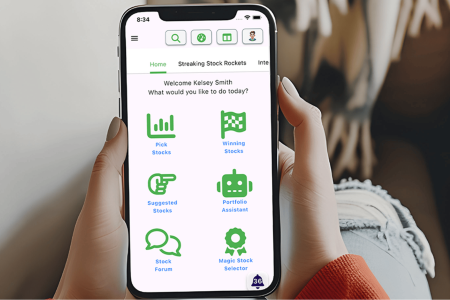Rising interest rates and inflation have obvious disadvantages, (insert) paying $80+ to fill your car up or spending $8+ on a carton of eggs. But, these price increases are making one type of savings/investment vehicle more attractive—US Government Series I Bonds, or “I-Bonds.”
These investments, backed by the full faith and credit of the US Government, may be considered a “safer” savings and investment strategy to protect your money from losing value during high inflation periods. The interest rates on I Bonds are adjusted frequently (every six months) to track inflation. Also, series I bonds are exempt from state and local income taxes, which can make them a solid low-risk investment for savers who live in high-tax states and cities.
However, as good as that all sounds, there are things you need to consider before jumping in and Alex discusses the pros and the cons of I Bonds in the Money Hacks episode below. Let us know if you have any questions.
Any money questions you’d like answered? Our Money Hacks series is created from conversations we have with employees, investors, savers, and all people planning for their financial futures. What topics are on your mind for our next episode? Email us here!
Video Transcript:
Hey, this is Alex Assaley! It’s episode number 91, of Money Hacks. Thanks so much for joining me here in early May. We’ve had a really challenging start to the year when it comes to the financial markets. Interest rates have been headed up as the federal reserve raised rates/ inflation still remains high.
And one of the things that a lot of investors and a lot of individuals are asking about is series I savings bonds. Are these a good vehicle for me? For my emergency savings or for other money that I’m setting aside for the short, medium, or long-term financial goals that I have. And so, a great, great question from, from a number of folks these are really interesting vehicles, so they’re obviously backed by the full faith of the federal government, you can actually purchase I bonds or series I bonds through the TreasuryDirect website and there are some rules on how you can purchase these bonds, how much you can purchase, how you earn interest on these. And right now, as a lot of people have heard the interest rates on series I bonds are significantly higher than they’re been in recent history and much more than what people were getting in traditional high yield money market funds or other savings accounts, or even the investment market. So, we’ve seen a great deal of volatility, and to give you a quick tutorial on how I bonds work they’re basically two functions to these series I savings bonds. There’s a fixed-rate function and a variable rate function. The fixed-rate function is based on a number of different factors, including interest rates set by the federal reserve and federal government-backed interest rates. The variable function is based on inflation. So, the fixed rate of current series I bonds remains at 0% which is the floor.
So, if you are getting, you know just the fixed-rate, you’re, getting zero but because we have high levels of inflation currently the variable rate right now for the next six months is 9.62%, but that’s annualized. So, what that really means, if you were to invest in an I bond today, in early May, over the course of the next six months, you would earn 4.3% on your investment.
And so, they take that for the next six months and they say, well, if we analyze that, that’d be 9.6%. A little more than what you actually get. You get 4.3% for the next six months and then after that, it gets reset again for the following six months, and then thereafter, it continues to reset both the fixed rate, which has been zero for a long time, and the variable rate.
Now here’s the catch, while I bonds are great vehicles, you can basically keep pace or in some cases, maybe outpace inflation by these types of investments. There are restrictions on getting access to that money. So, what we prefer people to save in for their emergency savings, a high yield savings account or money market fund if you were to pull money out of your I bond in anytime in the first five years, you get a three-month interest penalty. So, you actually pay back the last quarter’s worth of earnings or interest that you receive. Additionally, you have to hold them for at least one year.
You can own them for a 30-year period, or if you cash them in before that, anytime in the first five years, if you were to take the money out of an I bond and you pay a one quarters of interest back to the federal government. After that, after the five-year period, no interest on the I bond. You’re also capped on how much you can invest, $10,000 per person going electronic payment through TreasuryDirect.
You could also do an extra $5,000, if you’re getting a tax refund of $5,000 or more, you can have that to invest in the I bond. So, theoretically, somebody could get as much as $15,000 per year.
If you have children, you could invest in an I bond on behalf of a child. So, depending on the size of your household, you may be able to get more and guarantee some pretty significant returns over the next six months in these I bonds. So, a really interesting investment vehicle for money that you’re willing to set aside for a year, or more, really, 15 months at a minimum. That you don’t need to touch, and you can keep pace or possibly even outpace inflation at today’s rates, but if it’s emergency savings that you might need in the next three months or six months or money, you’re setting aside to purchase a bigger ticket item in that short period of time, probably not the right vehicle for you.
So TreasuryDirect is a place you can learn more. You can also reach out to our firm, and check us out on social or MoneyNav.com. Thanks! See you next time!
Read the full article here









